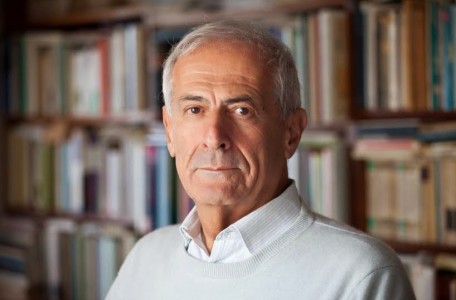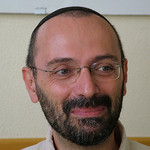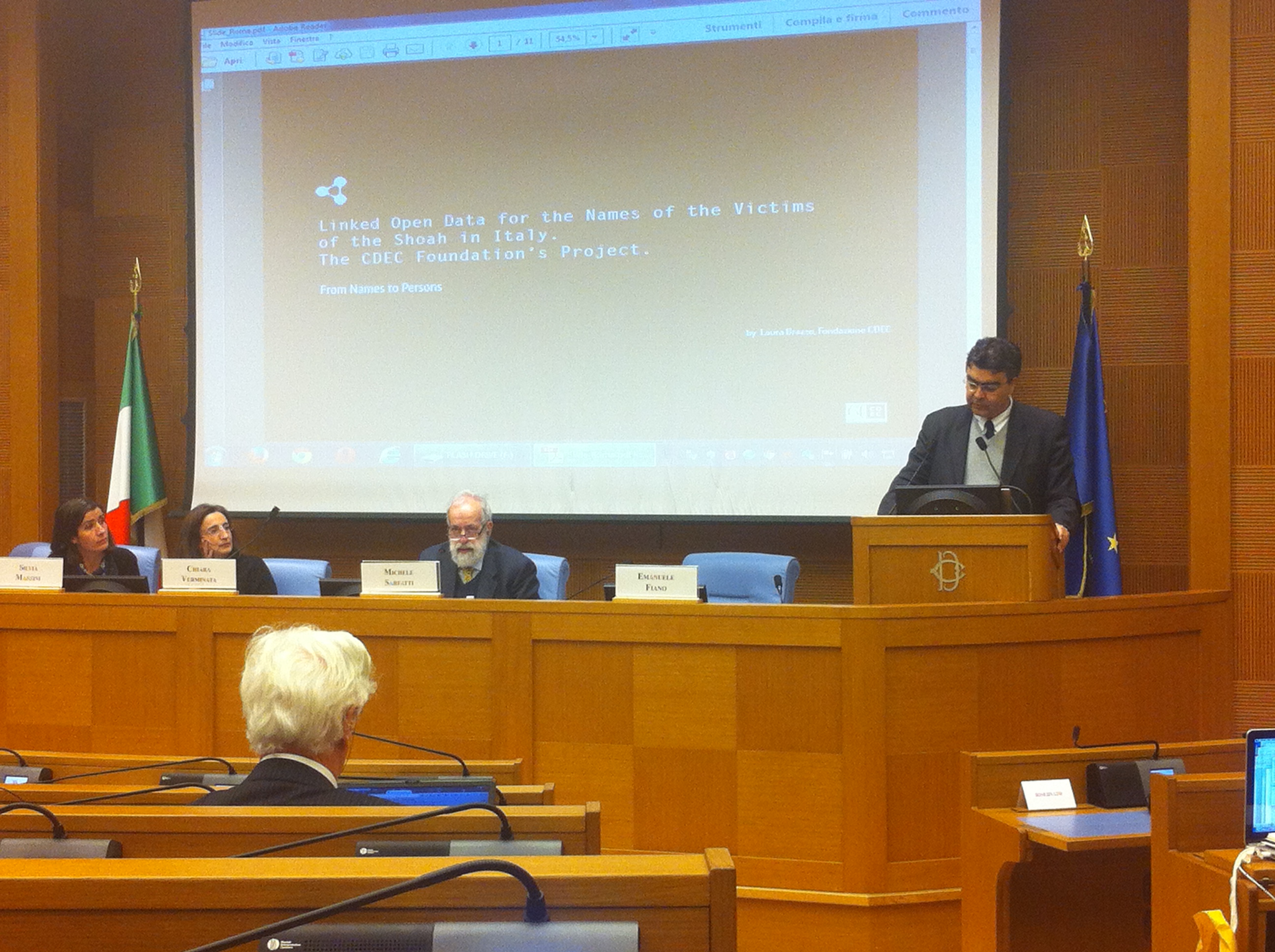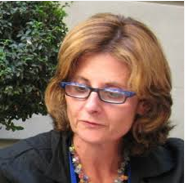 |
A Punch in the Stomach
|
 by Guido Vitale* by Guido Vitale*
"The Memory of the Shoah is not a bunch of words, that Memory is a
punch in the stomach." (Daša Drndić, Pagine Ebraiche - February 2015).
*Guido Vitale is
the editor-in-chief of Pagine Ebraiche.
|
| |
 |
Italian Word of the Week:
LUOGHI
|
by Daniela
Gross
After the terrorist attacks in Paris, the International Holocaust
Remembrance Day is going to be set in a special atmosphere. All over
the world, public opinion strongly reacted to that massacre, defending
the freedom of expression as a fundamental value of democratic and
civil life. Less than three weeks after the Paris incidence, the
Holocaust Remembrance Day - which in Italy is called “Giorno della
Memoria” - is an opportunity to reevaluate what weight have prejudice
and exclusion in our society. To do this, as recently the Minister of
the Education Stefania Giannini reminded, we should start from our own
local places.
When we talk about the Shoah, we always remember Auschwitz. As a matter
of fact, the Holocaust Remembrance Day is set on the day of its
liberation. But in Italy, many “luoghi” (places) reconnect us with the
terrible logic that finally gave life to persecutions: the Rome’s
Ghetto, from where, on October 16, more than a thousand people were
deported to the extermination camps; “Binario 21”, the train track of
the Milan’s railway station from which the deporting trains were
departing; the “Risiera” of Trieste, a former rice-husking facility
that became the only Italian extermination camp; the camp of Fossoli,
last step for the Jewish prisoners before to being transported to
Auschwitz.
Maybe, as we were recently reminded on Corriere della Sera by Ricardo
Franco Levi and Alberto Melloni, the terrible physicality of these
“luoghi” might help the new generations to understand what really was
the persecution against Jews in Italy. To be there, to touch those
walls, or the doors of the cells, may be the right way to build a
deeper comprehension of history and responsibilities, beyond platitudes
and too comfortable visions.
|
| |
|
|

Holocaust Memorial Day
The Message of the Righteous
 The
following speech was delivered by Sergio DellaPergola professor at the
Hebrew University of Jerusalem, and member of the Yad Vashem Committee
for the Righteous Among the Nations at the British Minister of Foreign
Affairs in London on January 21, 2015 at the Holocaust Memorial Day
Commemoration Ceremony. The
following speech was delivered by Sergio DellaPergola professor at the
Hebrew University of Jerusalem, and member of the Yad Vashem Committee
for the Righteous Among the Nations at the British Minister of Foreign
Affairs in London on January 21, 2015 at the Holocaust Memorial Day
Commemoration Ceremony.
I am pleased and honored to represent at this Holocaust Memorial Day
Commemoration Ceremony the Committee for the Righteous Among the
Nations, of which I am a member and about whose mission and
achievements I will shortly say a few more words. But in this august
building, one cannot begin without first thinking of those Righteous
who were members of the diplomatic missions of their respective
countries while they actively fought to save Jewish lives under the
most exacting circumstances. Several of these brave individuals were
British diplomats, among them the Righteous Among the Nations Major
Francis (Frank) Foley. Among these many, let me first mention the story
of a Spanish diplomat, Sebastian de Romero Radigales, who since 1943
served as the Consul General in Athens.
Under German military occupation and during the days when the 60,000
Jews of Thessaloniki were being annihilated, in Athens de Romero
Radigales was actively trying to save a few hundred Jews who also were
Spanish citizens. With the Germans, the Italians and the Red Cross, he
was negotiating the organization of a convoy who would be let passing
through, by land or by sea, to reach the Spanish homeland using a
collective passport.
Facing these efforts, on June 4, 1943 Consul de Romero Radigales
received the following telegram from his Foreign Minister, Francisco
Jordana:
“Keep passive attitude, refrain from all personal initiatives and do not issue a collective passport”.
On July 1, 1943, the instruction followed:
“It is most essential that the excessive activism of the General Consul
in Athens is neutralized, and his initiative be stopped”.
On July 7, the following diplomatic telegram arrived:
“By order: stop issuing collective passport, and execute instructions, with no discounts”.
Finally, on July 14, de Romero Radigales received the following diplomatic instruction:
“In no way did the Government of Spain consider returning masses of
Spaniards besides a few individual cases. Therefore, not by train, not
with no train, not in small groups that contradict our will”.
Soon after, to the Consul General's dismay, 367 Jews whose deportation
he had tried avoiding by all means and he had succeeded delaying were
dispatched to the camp in Bergen Belsen. Here, by fortuitous
circumstances they survived, and finally were liberated. The survivors
explicitly recognized they owed their lives to the efforts and bravery
of Sebastian de Romero Radigales. In 2014, the Righteous of the Nations
award was presented in his memory to his family at a beautiful ceremony
in Yad Vashem, in the presence of the Ambassador of Spain in Israel.
The Righteous Among the Nations
The basic operating principle of the State of Israel's Righteous among
the Nations enterprise is best rendered by one cardinal principle of
Jewish tradition spelled in the following passage of Mishnah
(Sanhedrin):
"Whoever saves a life, it is considered as if he saved an entire world"
In setting up the Righteous Among the Nations program, the State of
Israel, on behalf of the Jewish People, conferred upon the Yad Vashem
Holocaust and Heroism Memorial the task of commemorating the acts of
those who risked their lives to save Jews. Thus began a unique endeavor
in which the victims of an unprecedented crime commemorate not only
those who perished but also those among the nations of the
perpetrators, collaborators and bystanders who protected Jews from
death and deportation.
The survivors of the Holocaust were, and still are, the driving force
behind these efforts of recognition and expression of gratitude.
Despite having experienced ultimate evil, terrible loss and betrayal by
their neighbors and societies, they never forgot their benefactors. The
Righteous program is therefore also an expression of the survivors'
affirmation of life, their courageous spirit and their faith in mankind.
In a sense, recognition of a person as Righteous is similar to a
process of religious beatification. It is indeed a secular procedure,
conducted by conscientious and competent lay people, chaired by retired
Supreme Court Justice Yaakov Tirkel, but it follows very precise rules
that may remind the more sacred procedure. The rules, impartially and
carefully applied, are (1) that the person in question must have been
clearly identified; (2) that the person actually operated to save the
life of one or more Jews; (3) that he or she did so not out of direct
material compensation or other personal benefit; and (4) that the
person actually put his own life in danger to save the life of others.
So far about 25,000 persons have been honored with the Award. One of
the great dilemmas and mysteries when assessing the Righteous Among the
Nations relates to the attempt to finding some common traits and
creating a typology that might help us predicting whether under
conditions of duress a person is bound to help and save lives, or not –
to be a Righteous or not. My cumulated experience as member of the
Committee shows that Righteousness is not associated to wealth,
education or social class. We have the rich and the poor, the educated
and the near analphabets. Nor is it related to religious faith: we have
numerous man and women of faith and church, and as many atheists or
agnostic. Neither it is in a sense related to political conviction: of
course the majority of the Righteous were antifascists and in some
other ways close to the fight for freedom, but so many others were
members of the ruling party, had been imbued of anti-Semitism like
anyone else at the time, and nevertheless found the strength to go
against the current. The mystery of Righteousness seems to boil down to
the basic variability of human nature: both good and evil are there,
and each individual – facing the crucial decision – will make his or
her choice according to what is deep inside personal conscience.
Diplomats
The position of diplomats is somewhat peculiar in the general framework
of the Righteous Among the Nations. To this day 34 diplomats from 19
countries have been recognized. Indeed, in theory, diplomats enjoy
immunity and might therefore be exempt from endangering one's own life
which, instead, is among the prerequisites for Righteous recognition of
other persons. The rules that apply to diplomats, as well as to senior
churchmen and women, indeed also consider the risk of losing one's own
position and career as a consequence of actions undertaken in favor of
saving the lives of persecuted Jews. Such loss of status can indeed
represent a crucial factor when facing the dilemmas of life and death.
It requires great bravery to make the right choices, especially when
those choices bluntly contradict the instructions received and
sometimes fiercely imposed by the superiors in charge – as we just
demonstrated in the case of the Spanish diplomat in Greece.
But nevertheless there were those diplomats who not only acted bravely
under impossible circumstances, but also lost their life. The better
known case is Raul Wallenberg, the Swedish diplomat in Hungary, but
there were others. The predicament is better rendered with the words of
Per Anger, another Swedish diplomat in German occupied Hungary:
So what can we do? They were queuing up outside the embassies, pleading
for help… What could we do? There was nothing in our books of
instructions telling us how we could save people of other
nationalities…
Church people: A personal story
Senior churchmen and women stand in a condition for recognition as
Righteous among the Nations somewhat similar to diplomats. Allow me to
stress this by recalling here one more example of the inspired action
of a man and a woman that saved Jewish lives – in this case the life of
my parents and my own. The scene is in Florence, December 1943, under
German occupation, and the narrator's voice is my father's diary,
Massimo Della Pergola.
"The taxi brought me (my father), Adelina (my mother) and our one year
old son (myself) from our current hiding in a mental hospital to a
little boarding house in town where we had already been in hiding for a
while. We had no choice. When the owner saw us she put her hands in her
hair and said: "You, still here?" She looked at the boy and said: "I
can hold you for one or at most two nights, but no more".
We spent that night desperately awake, listening to the sound of German
trucks that stopped to arrest Jews on the river's bank. Adelina invoked
an air raid, wishing that a bomb fell on us and kill us, saving us the
horror of deportation.
The next day a kind of miracle occurred. A Florentine lady, Professor
Livia Sarcoli, a very observant Catholic, had heard in church at the
six a.m. mass the sermon the Archbishop of Florence, Cardinal Elia
Dalla Costa. This brave man and prominent Church leader, the holder of
great spiritual and human values, had launched an appeal to the
faithful: "In these times there are people who suffer and are in
serious danger. They are our brothers. Try to help them." He was
referring of course to the Jews.
Ms. Sarcoli was elderly, devout, and taught literature in an institute
of nuns. After the mass, she went to the little boarding house, to see
the pension's owner who fortunately for us was her friend, and told her
how impressed she was by the words of the Cardinal. "But I" she added,
"I know of no Jew". And the friend, without hesitation, replied: "The
Divine Providence is sending you. I have here at home a young Jewish
couple. They have a one year old baby. Try to help them."
We were very moved when Ms. Sarcoli told us to go and stay at her
house. And she added: "I shall go to the convent where I teach. You
will be alone in the house, but please do not talk to anyone, do not
make any noise, never open the door and windows, and never answer the
phone". We moved into her apartment in Via della Colonna, on the ground
floor of a house without a lift and no guardian. The apartment was
large and well furnished. To us it seemed beautiful and safe. There we
could spend some critical weeks.
Unfortunately we would not see again our savior. At the end of the war,
in 1945, we went to Florence looking for her and thank her but we
learned she had died recently. A few days before passing our savior had
asked her family in attendance: "Who knows if those dear young people
were saved". What she could not know was that thanks to her
providential intervention we were able to find a contact with the
Italian underground and the Anglo-American intelligence, and trough
them we received instructions and logistical assistance to reach the
Swiss border, pass it on foot, and gain personal safety. It was the
night of Christmas 1943."
In 2012 Cardinal Dalla Costa, whose words were so decisive to save our
lives, was recognized as Righteous among the Nations. In 2014, Ms.
Sarcoli, whose piety gave us shelter, joined him after receiving the
same Righteous award. At times one word is enough to save a life. But
it is essential that that word be pronounced, and unfortunately history
tells us that not all those who could, openly did utter that word.
The international context
For those of us who have the privilege of being here to recall and to
tell, International Shoah Memorial Day is the natural occasion that
allows remembering and transmitting a message of gratitude to the
saviors, as well as a message of warning against those who not only
ostentatiously show that they have not understood, but consciously
continue on the same path of hatred, destruction and annihilation.
We already saw how vicious can be the attitude and practice by those
who were perhaps not the direct perpetrators, but had a definite role
in the consequences. Similar vicious sentiments are still present and
actually rapidly increasing across contemporary societies. From my
research work I can testify that the survey initiated in 2012 by
Fundamental Rights Agency of the European Union in nine countries
clearly indicates that already then European Jews perceived a definite
increase in the manifestations of anti-Semitism, of racism, of
xenophobia and of religious intolerance.
As the events of the last weeks tragically demonstrate, hatred and
destructive action continue to operate against Jews, who served in the
past and serve today as the litmus paper of tolerance in civil society.
Hatred also operates against the broader constituted polity, as
represented by its law and security institutions; and against freedom
of expression and tolerance of different opinions, as impersonated by
the press. More than ever, maximum vigilance and responsibility is
required today.
By convening here today on this Day of Memory we hope and trust that
the lofty message of remembrance, solidarity and gratitude will be
transmitted to humankind for many generations more.
Read more
|
THE WORLDS OF PRIMO LEVI
A Controversial Train, and a Quest for the Writer’s Sculptures
 By Ada Treves By Ada Treves
The
opening of the exhibition "The worlds of Primo Levi - A strenuous
clarity", the is hosted in the Medieval Court of Palazzo Madama, in
Turin, proved a great success, with hundreds of people queuing with
patience in the entrance and outside, in the big historical square.
But the beautiful square, Piazza Castello, has been the centre of a
harsh controversy when the Superintendent of Fine Arts made clear that
the train that has been placed in front of Palazzo Madama was not
allowed to stay more than a couple of weeks, not to “disturb the
aesthetics of the square.” But the object of the controversy is a
historical wagon, lent by the local railway museum, identical to those
used to transport prisoners to Auschwitz, placed in the square to mark
the place of the exhibition.

Read
more
|


| Destinations |

By Benedetto Carucci Viterbi*
“Go
forth from your country, [...] to the land which I will show you”. The
first command of God to Abraham leaves the destination undetermined.
Every step of his wandering becomes, itself, fulfillment of the divine
word.
*Benedetto
Carucci Viterbi is a rabbi and the principal of Rome Jewish School. The
article was translated by Sabina Muccigrosso and Jazmine Pignatello,
students at Muhlenberg College (Allentown, Pennsylvania, USA).
|
|
|
Follow
us on  
This newsletter is published under difficult conditions. The editors of
this newsletter are Italian journalists whose native language is
Italian. They are willing to offer their energy and their skills to
give international readers the opportunity of learning more about the
Italian Jewish world, its values, its culture and its traditions.
In spite of all our efforts to avoid this, readers may find an
occasional language mistake. We count on your understanding and on your
help and advice to correct these mistakes and improve our publication.
Pagine Ebraiche International Edition is published by the Union of
Italian Jewish Communities (UCEI). UCEI publications encourage an
understanding of the Jewish world and the debate within it. The
articles and opinions published by Pagine Ebraiche International
Edition, unless expressly stated otherwise, cannot be interpreted as
the official position of UCEI, but only as the self-expression of the
people who sign them, offering their comments to UCEI publications.
Readers who are interested in making their own contribution should
email us at desk@ucei.it
You received this newsletter because you authorized UCEI to contact
you. If you would like to remove your email address from our list, or
if you would like to subscribe using a new email address, please send a
blank email to desk@ucei.it
stating "unsubscribe" or "subscribe" in the subject field.
© UCEI - All rights reserved - The articles may only be reproduced
after obtaining the written permission of the editor-in-chief. Pagine
Ebraiche - Reg Rome Court 199/2009 – Editor in Chief: Guido Vitale -
Managing Editor: Daniela Gross.
Special thanks to: Francesco
Moises Bassano, Susanna Barki, Amanda Benjamin, Monica Bizzio, Angelica
Edna Calò Livne, Eliezer Di Martino, Alain Elkann, Dori Fleekop,
Daniela Fubini, Benedetta Guetta, Sarah Kaminski, Daniel Leisawitz,
Annette Leckart, Gadi Luzzatto Voghera, Yaakov Mascetti, Francesca
Matalon, Jonathan Misrachi, Anna Momigliano, Giovanni Montenero, Elèna
Mortara, Sabina Muccigrosso, Lisa Palmieri Billig, Jazmine Pignatello,
Shirley Piperno, Giandomenico Pozzi, Daniel Reichel, Colby Robbins,
Danielle Rockman, Lindsay Shedlin, Rachel Silvera, Adam Smulevich,
Simone Somekh, Rossella Tercatin, Ada Treves, Lauren Waldman.
Questo notiziario è realizzato in
condizioni di particolare difficoltà. I redattori di questo notiziario
sono giornalisti italiani di madrelingua italiana. Mettono a
disposizione le loro energie e le loro competenze per raccontare in
lingua inglese l'ebraismo italiano, i suoi valori, la sua cultura e i
suoi valori. Nonostante il nostro impegno il lettore potrebbe trovare
errori e imperfezioni nell'utilizzo del linguaggio che faremo del
nostro meglio per evitare. Contiamo sulla vostra comprensione e
soprattutto sul vostro aiuto e sul vostro consiglio per correggere gli
errori e migliorare.
Pagine Ebraiche International Edition è una pubblicazione edita
dall'Unione delle Comunità Ebraiche Italiane. L'UCEI sviluppa mezzi di
comunicazione che incoraggiano la conoscenza e il confronto delle
realtà ebraiche. Gli articoli e i commenti pubblicati, a meno che non
sia espressamente indicato il contrario, non possono essere intesi come
una presa di posizione ufficiale, ma solo come la autonoma espressione
delle persone che li firmano e che si sono rese gratuitamente
disponibili. Gli utenti che fossero interessati a offrire un proprio
contributo possono rivolgersi all'indirizzo desk@ucei.it
Avete ricevuto questo messaggio perché avete trasmesso a Ucei
l'autorizzazione a comunicare con voi. Se non desiderate ricevere
ulteriori comunicazioni o se volete comunicare un nuovo indirizzo
email, scrivete a: desk@ucei.it
indicando nell'oggetto del messaggio "cancella" o "modifica".
© UCEI - Tutti i diritti riservati - I testi possono essere riprodotti
solo dopo aver ottenuto l'autorizzazione scritta della Direzione.
Pagine Ebraiche International Edition - notiziario dell'ebraismo
italiano - Reg. Tribunale di Roma 199/2009 - direttore responsabile:
Guido Vitale - Coordinamento: Daniela Gross.
Realizzato con il contributo di: Francesco
Moises Bassano, Susanna Barki, Amanda Benjamin, Monica Bizzio, Angelica
Edna Calò Livne, Eliezer Di Martino, Alain Elkann, Dori Fleekop,
Daniela Fubini, Benedetta Guetta, Sarah Kaminski, Daniel Leisawitz,
Annette Leckart, Gadi Luzzatto Voghera, Yaakov Mascetti, Francesca
Matalon, Jonathan Misrachi, Anna Momigliano, Giovanni Montenero, Elèna
Mortara, Sabina Muccigrosso, Lisa Palmieri Billig, Jazmine Pignatello,
Shirley Piperno, Giandomenico Pozzi, Daniel Reichel, Colby
Robbins, Danielle Rockman, Lindsay Shedlin, Rachel Silvera, Adam
Smulevich, Simone Somekh, Rossella Tercatin, Ada Treves, Lauren Waldman.
|
















